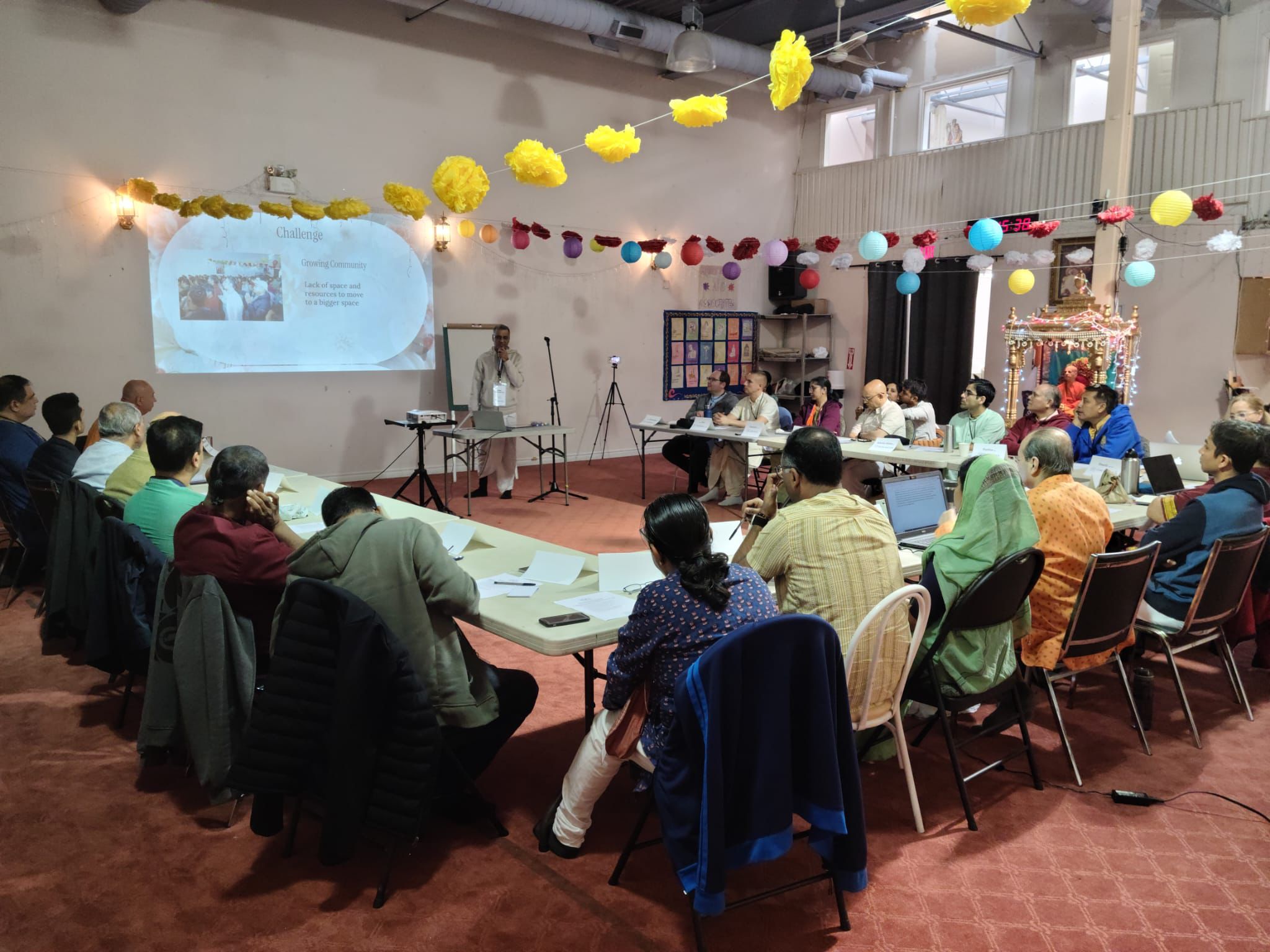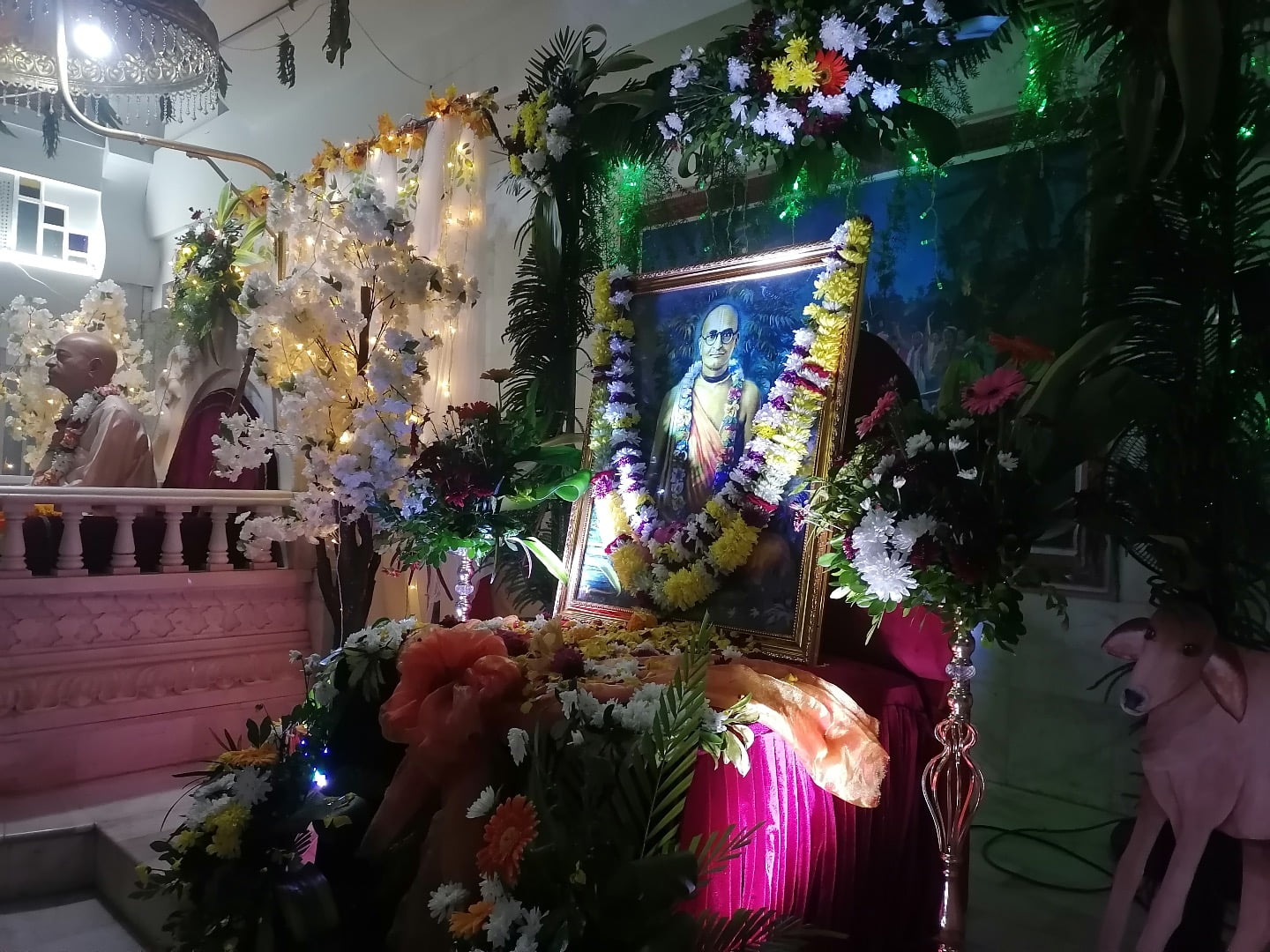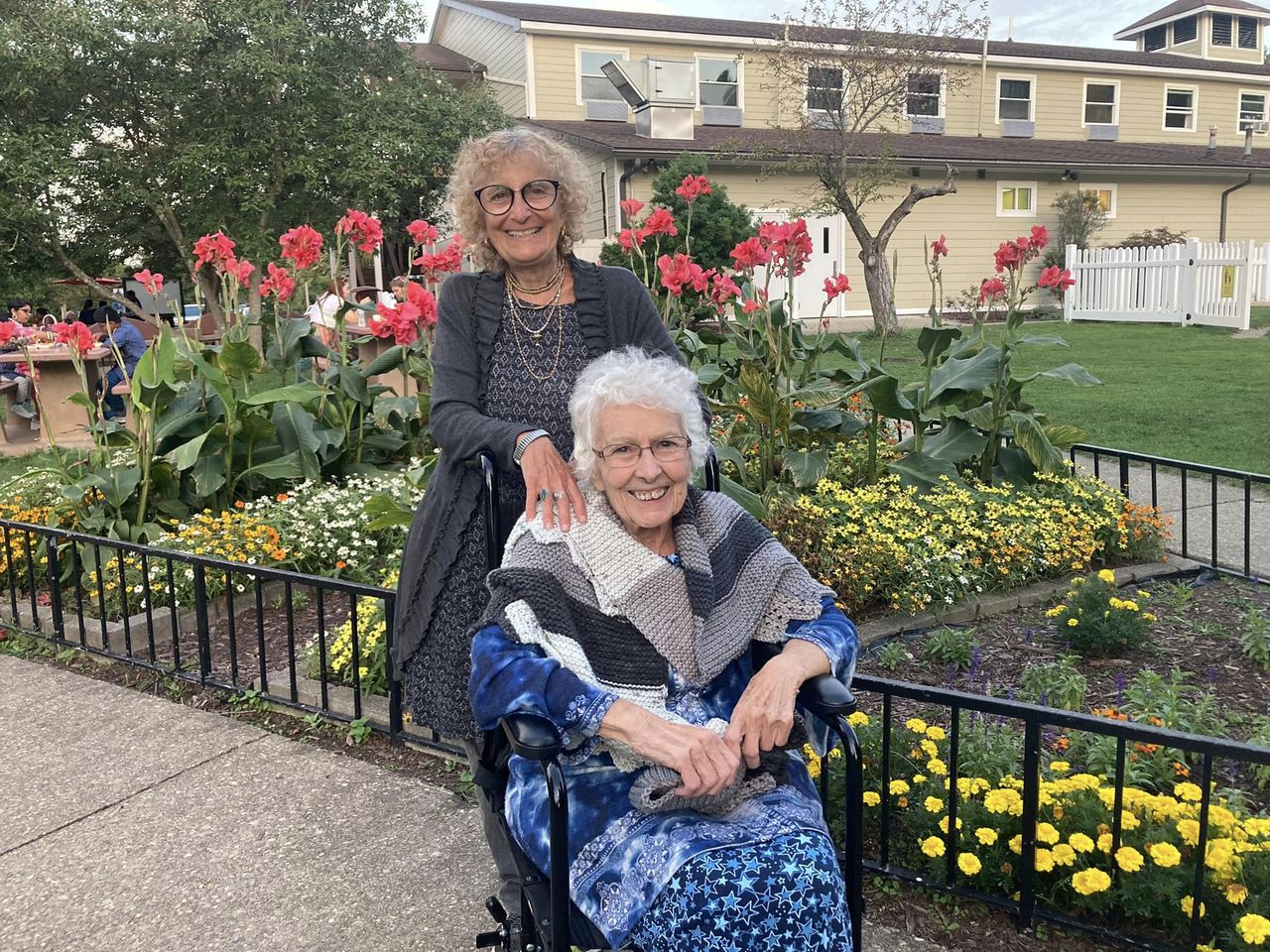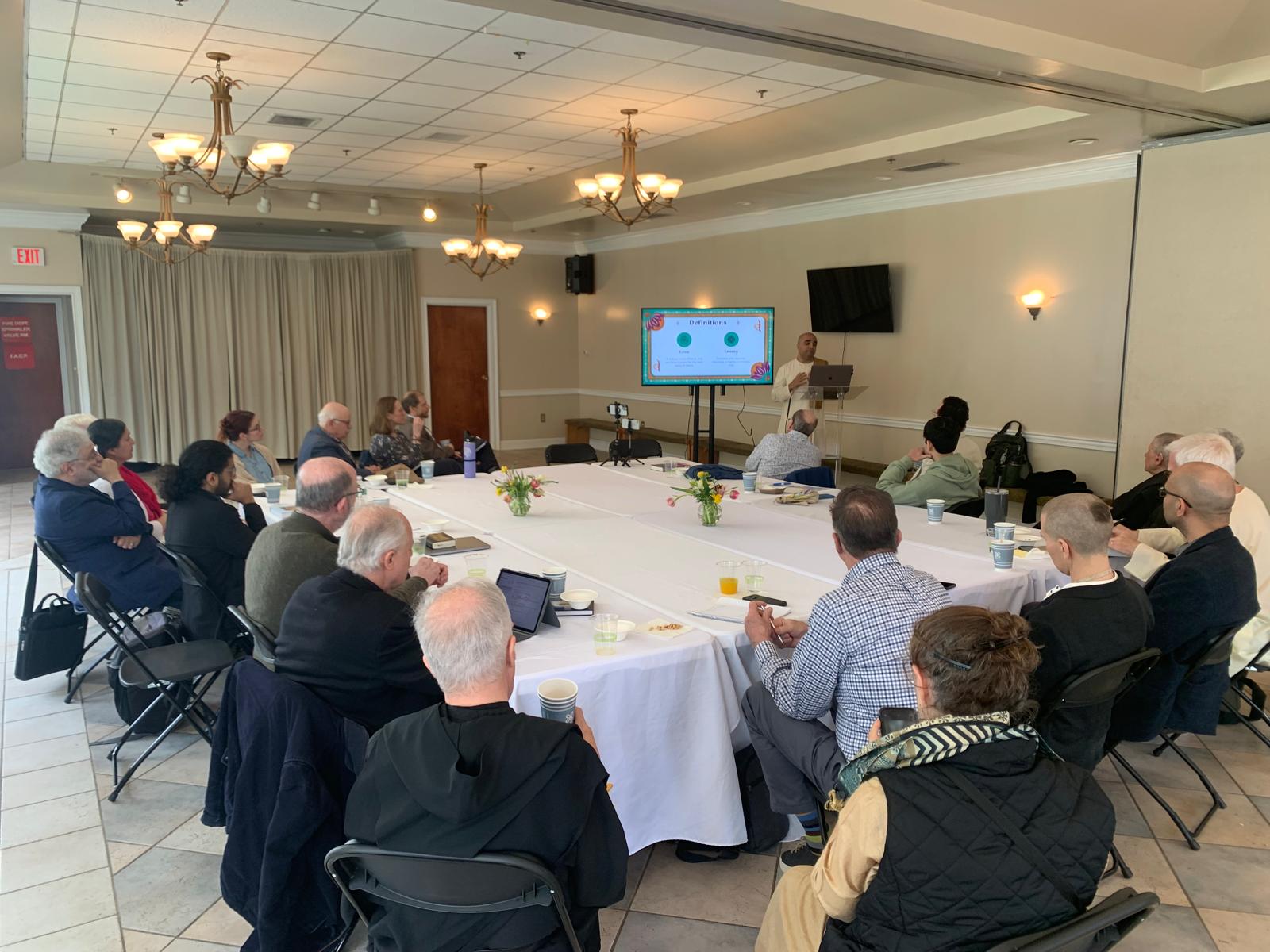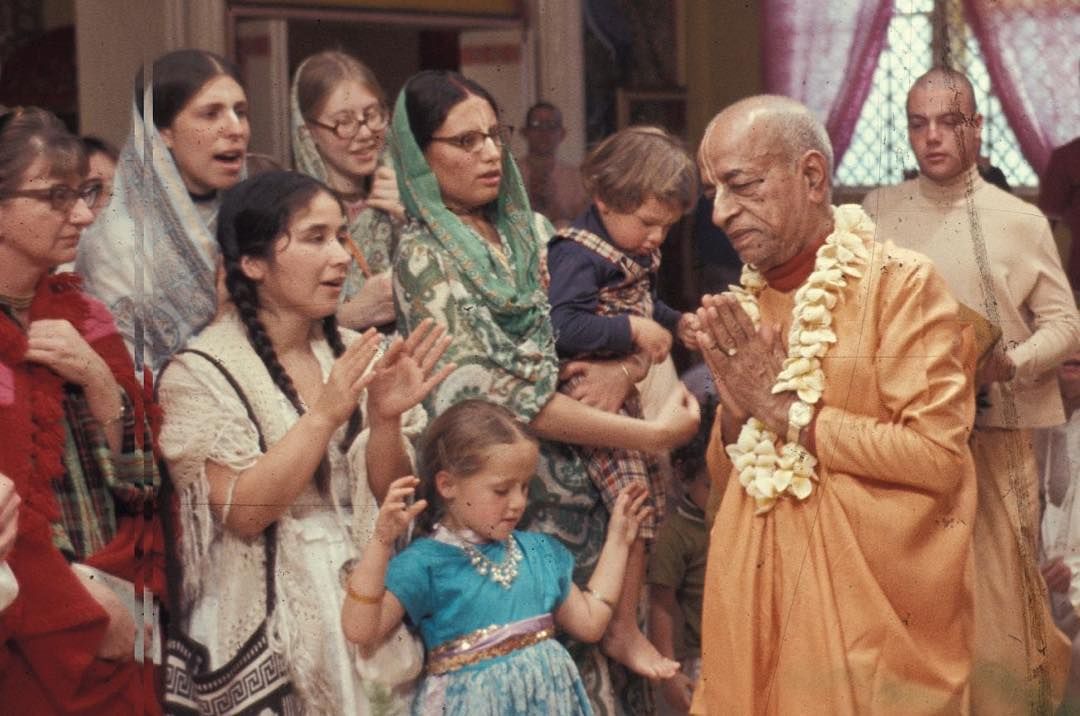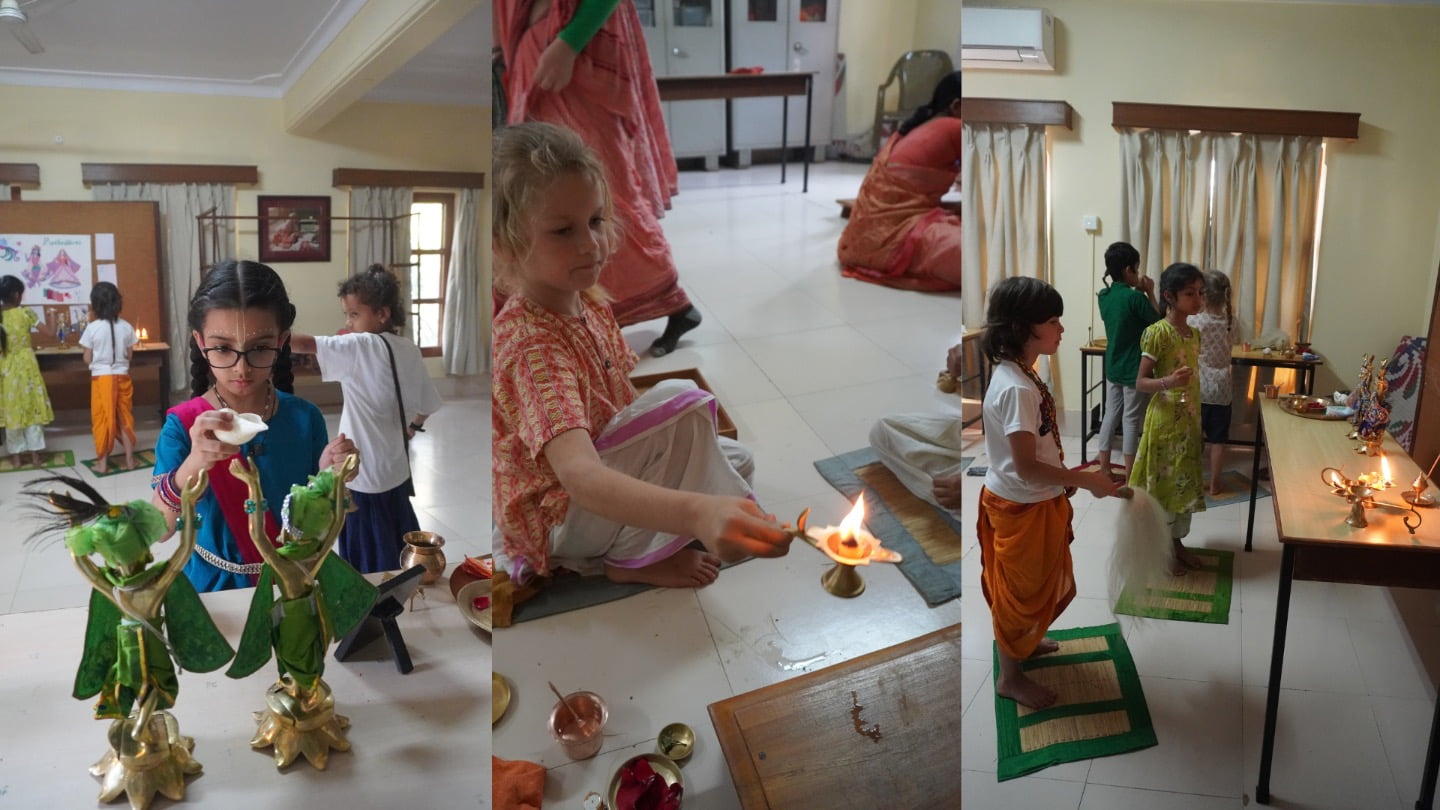Rukmini Dasi: Seeing Business and Spirituality as Kindred Spirits
By Madhava Smullen | Jun 23, 2012
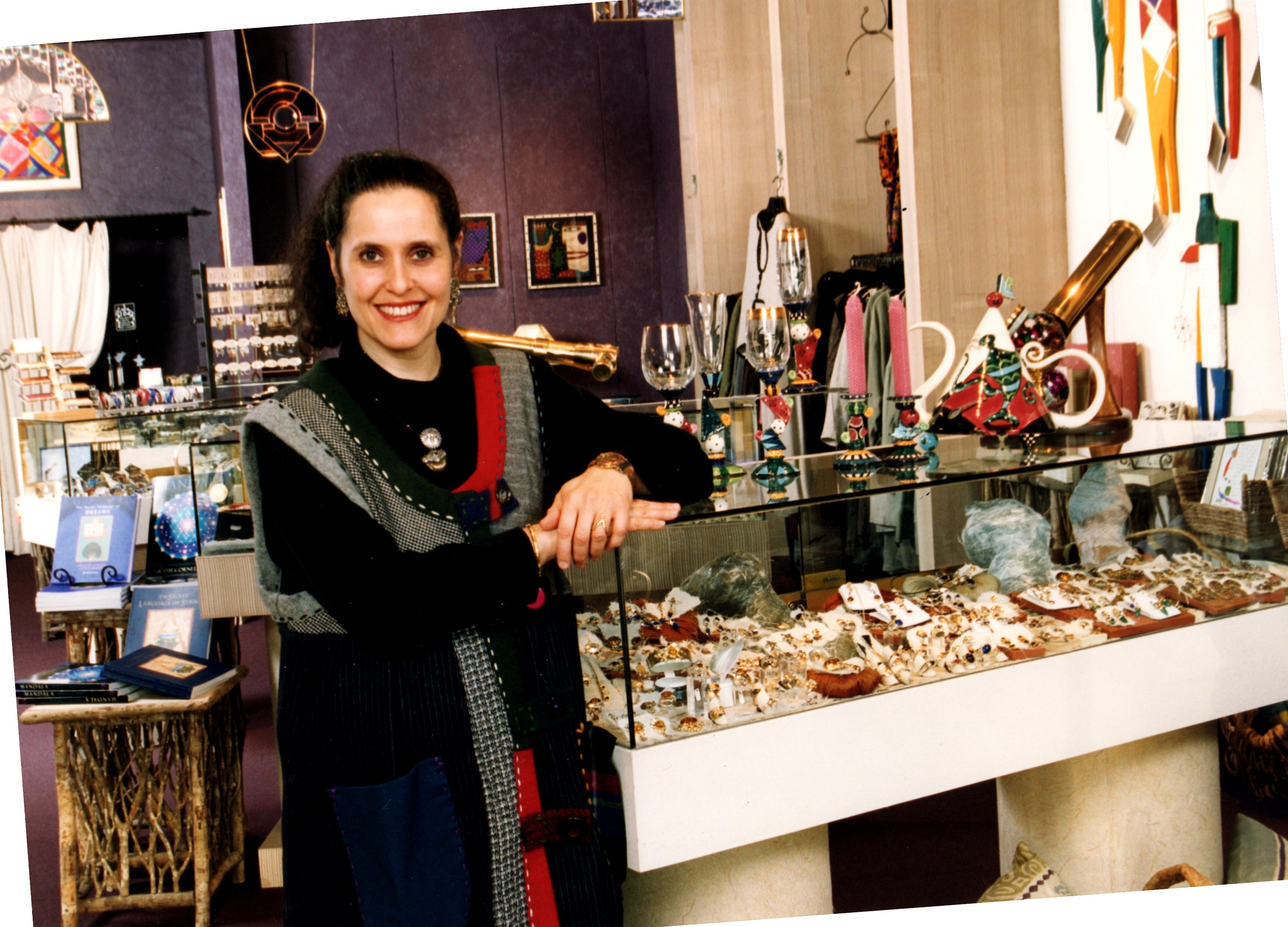
As ISKCON heads towards its fiftieth year, a majority of its members, who once renounced everything to live in temple ashramas, now find themselves working full-time to maintain their families. Some may even start their own enterprises.
In moving with the changing times, however, how do we keep our dedication to Krishna consciousness while attending to our household responsibilities?
Rukmini Dasi, who became a disciple of ISKCON founder Srila Prabhupada in 1968, successfully made the transition from those monastic early years. Today, she has over twenty years of experience as a business owner; and her harmonizing of her work with Krishna consciousness is an indispensable example for all upcoming God-conscious professionals or entrepreneurs.
Born Wendy Weiser in the Chicago suburb of Highland Park, Rukmini grew up with her businessman father running several fabric stores in the area. But as a young woman, business was the furthest thing from her mind.
“I was very artistic,” she says. “Most of all, though, I was searching for God.”
In ISKCON, she found both interests fulfilled. Worshiping the Deity forms of God at ISKCON temples in New York and Boston, she used her artistic abilities to decorate and dress the Lord. For many years, she served both in this way, and in distributing to the public Srila Prabhupada’s books on self-realization.
It wasn’t until the early 1990s that she and her husband Anuttama Dasa began running temporary kiosks at various malls to provide financial support for their local temple in Denver, Colarado. Then, in 1993, when Anuttama was invited to relocate to Washington D.C. to become ISKCON’s North American Communications Director, they began to focus on malls in the Washington area to support his volunteer effort.
“We had no idea what we were doing,” Rukmini says. “We weren’t trained in business, and had no business plan. All we had was a prayer: ‘May the right doors open and the wrong doors close.’ Praying in such a way, we always felt that we were being guided.”
Sure enough, in 1994, the couple opened their first permanent store in Rockville, Maryland, a suburb of D.C.
Rukmini decided to simply sell things that she liked, which she says is good advice for anyone starting a business who wants to remain interested in their job.
“I joke to my customers that the store is an incongruous mix of things that appeal to me,” she says. “I would just get bored selling things I didn’t like. So we sell upscale American handcraft, designer jewelry, artistic clothing, and small home furnishings, all made by small studio artists that can’t supply malls or large department stores.”

A collection of things in the store that “appeal” to Rukmini
This theme fit perfectly with Rukmini’s spiritual ethics, and her goal to support spiritual projects with her store’s profits.
“As a pujari (priest), I offered the beautiful things of this world—flowers, fruits, clothing—to Lord Krishna,” she says. “In the same way, I felt that the profits of a business that sold beautiful things, such as the work of accomplished artists and craftspeople, could go to serve worthy projects by ISKCON and other organizations.”
These projects in turn, Rukmini felt, served beauty and truth—described by poet Emily Dickinson “as kindred spirits.” And so, in a title that encompassed this ideal as well as the spiritual ethic that there’s a connection between all living beings, she named her store “As Kindred Spirits.”
A busy location, with plenty of walk-in traffic, helped the fledgeling business, which focused on a clientele interested in lifestyles of health and sustainability. Gradually, it grew.
In 1996, Rukmini opened a second store at Washington’s Reagan National Airport, and in 2008, a third at the Annapolis Towne Centre in Annapolis, MD. With the profits, she and her husband were able to donate to various ISKCON temples and projects over the years. They sponsored scholarships for young students of Bhaktivedanta College in Belgium, and partnered with Rupa Raghunath Dasa on the Varaha Project to combat environmental degredation in the holy town of Vrindavana, India. They donated to the Oxford Centre for Hindu Studies in the UK, the ISKCON Child Protection Office, and Children of Krishna.
“We attended a 1996 meeting where a lot of youth came forward to talk about the difficulties they had experienced in ISKCON schools,” Rukmini says. “There was a very urgent need to help them. So we contributed towards starting an organization specifically dedicated to helping them with counseling, educational grants, and enterprise start-up funds.”
As well as donating her profits towards worthy causes, Rukmini works hard to make her store a refuge for those seeking something higher in life. In keeping with the store’s Kindred Spirits theme, she does this in a broad, multicultural way, without any one agenda. Kirtan plays over the sound system along with spiritual music of other cultures, and uplifting books such as Shel Silverstein’s The Giving Tree, poetry works and beautiful Christian or Muslim coffee table books sit alongside Radhanath Swami’s The Journey Home.
Of course, when the time is right, Rukmini does volunteer the wisdom that changed her own life.
“A lot of military personnel come through Reagan airport, and pass our store there,” she says, recalling one particularly affecting incident. “One day, I spotted a young, troubled-looking servicewoman in uniform sitting and staring into space, as if she was grieving. I approached her and said, ‘I have something for you, in case you’ve ever lost someone, or seen someone dealing with death.’And I gave her a copy of Coming Back, based on Srila Prabhupada’s teachings about reincarnation. She didn’t say anything, but she took the book very gratefully and just started drinking it in. Ever since, we have stocked Coming Back at our airport store.”
One of the biggest contributors to the unique atmosphere in As Kindred Spirits—identified by customers with comments like “There’s good karma in here!”—is, of course the staff. Rukmini hires people who share her ethics. They may or may not be ISKCON devotees—although many are fascinated by the Krishna conscious lifestyle and have attended temple programs—but they are all kind, caring and good people with a sense of humility and a service attitude.
“We believe in servant leadership, which we feel is very much a Bhakti principle,” says Rukmini.
The staff are also hard workers—all three As Kindred Spirits stores are open from 10:00am to 9:00pm six days a week, and from 11:00am to 6:00pm on Sunday.
“It’s like having a baby—they always need attention,” says Rukmini, who spends time at each store every week, purchases new products, and establishes the business’s ambience and direction, while her husband handles the finances.

One of Rukmini’s “babies”… ummm stores
Both, however, have managers oversee the daily running of their stores, taking a pay cut themselves in order to be able to spend more time on their Krishna conscious priorities.
“Lord Krishna says in the Bhagavad-gita, ‘Everything rests upon Me, as pearls are strung on a thread,’” Rukmini quotes. “So we try to have our lives focused on Krishna, the foundation of all things, and by strengthening the foundation, we believe everything else will come. We make early morning japa meditation a top priority, and try to attend the morning program at the temple when we can.”
With the rest of her free time, Rukmini focuses on spiritual projects such as Washington’s interfaith Unity Walk, women’s spiritual empowerment initiatives such as Sacred Circles at the Washington National Cathedral, and teaching Bhakti-yoga at a variety of venues.
Recently on June 16th, she spoke at a teacher training event at Westside Yoga center in Lawrence, Kansas. Meanwhile on a more regular basis in D.C., she speaks at yoga teacher Gopi Manjari’s D.C. Satsang, where yoga students hear kirtan and Krishna conscious philosophy, and taste sanctified vegetarian food. Many have begun visiting the ISKCON temple in D.C. and are becoming devotees of Krishna.
Rukmini’s goal for the future is simple—to continue maintaining her stores until retirement, while keeping devotional projects a priority. She calls this “putting the big rocks first,” a life success principle taught by author Stephen Covey.
“I want to get more involved in writing, speaking, and teaching Krishna consciousness in different parts of the world,” she says. “I like the idea of helping people understand the process of Bhakti in a broad sense, rather than in a sectarian way; helping them find that devotional essence to life and the way they see the world. Many people today are trying to live more simply, and to care more for the environment. And by adding the principles of Bhakti, they can learn to purify their inner environment as well.”
Please note the photos in this article are purposely crooked. This is how Rukmini likes them.



